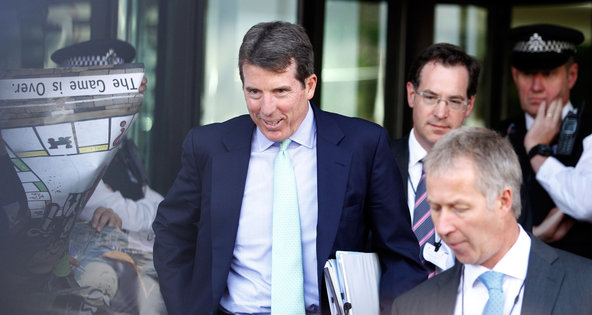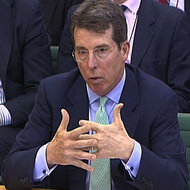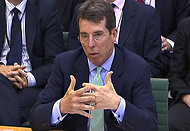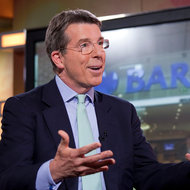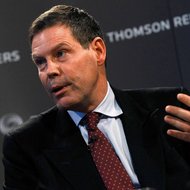 Stefan Wermuth/ReutersHector Sants, the former chief of the Financial Services Authority, raised concerns about Robert Diamond Jr., the former chief of Barclays.
Stefan Wermuth/ReutersHector Sants, the former chief of the Financial Services Authority, raised concerns about Robert Diamond Jr., the former chief of Barclays.
Documents released by the British Parliament on Wednesday shed new light on regulators’ early concerns about Robert E. Diamond Jr., the former chief executive of Barclays who stepped down amid the rate-manipulation scandal.
An e-mail in 2010 detailing a meeting between Hector Sants, then the chief executive of Britain’s Financial Services Authority, and Marcus Agius, the outgoing chairman of Barclays, indicates that authorities raised questions about Mr. Diamond’s ability to run Barclays. While regulators eventually approved Mr. Diamond’s appointment as chief executive, they said their position could change in light of the rate-manipulation investigation.
The e-mail helps to clarify recent testimony by regulators over the rate-manipulation scandal.
Related Links
In June, Barclays agreed to pay $450 million to settle allegations that employees reported false rates in an effort to bolster profits and make the British bank appear healthier during the financial crisis. The case centers on a benchmark rate known as the London interbank offered rate, or Libor, which is used to help set the price of trillions of dollars of loans and other financial products. In the wake of the scandal, Mr. Diamond and other top executives bank resigned.
After the settlement, bank executives and regulators appeared before a parliamentary committee to discuss the case. The testimony, in part, highlighted the concerns about the firm’s culture, in particular under Mr. Diamond. Barclays executives had dismissed claims that regulators raised issues about the culture at the British bank. But the new documents, which were released on Wednesday, offer more detail on the specific worries, particularly connected to the Libor investigation.
Libor Explained
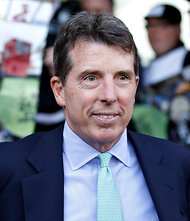 Lefteris Pitarakis/Associated PressRobert E. Diamond Jr., the former chief of Barclays, resigned in July because of a scandal involving interest rate manipulation.
Lefteris Pitarakis/Associated PressRobert E. Diamond Jr., the former chief of Barclays, resigned in July because of a scandal involving interest rate manipulation.
According to the e-mail, Mr. Sants of the Financial Services Authority warned the Barclays chairman that Mr. Diamond “had not reached the level of openness, transparency and willing to air issues” with regulators. The e-mail also shows that John Varley, then the chief executive of Barclays, promised to “coach” Mr. Diamond before handing over the reins at the beginning of 2011.
In the 2010 e-mail, regulators also took aim at Barclays’ “risk appetite and control framework,” while acknowledging that the bank had made progress in this area. Mr. Agius moved to reassure regulators, according to the e-mail, saying Mr. Diamond was “fully on board with the processes in place and will not want to risk failing in this area.”
“I’d like to record that in that conversation, I made clear that our concerns about Barclay’s culture were not some generic observation but specific to Barclays,” Mr. Sants wrote in a 2012 letter to Parliament.
Regulators approved Mr. Diamond’s new role in 2010, but offered a caveat. In a conversation with Mr. Agius, Mr. Sants noted the appointment “at this time was on the basis that the current view of the investigation does not have an adverse affect,” according to the e-mail.
Article source: http://dealbook.nytimes.com/2012/09/19/documents-shed-light-on-early-concerns-about-former-barclays-chief/?partner=rss&emc=rss
